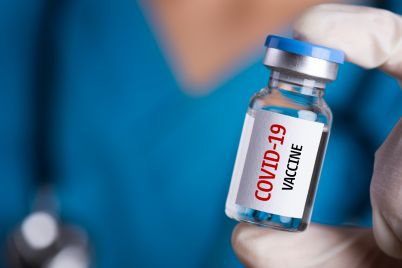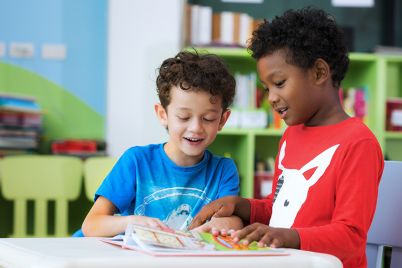Top Row L-R, Brighitte Whipple, virtual teacher, Stephanie Cox, virtual parent, in-person parent Ann Sherman-White. Bottom Row L-R, Janet Cunningham, Exceptional Student Education teacher, Congressman Charlie Crist, and moderator Steven Cary, district director for Crist
BY FRANK DROUZAS, Staff Writer
ST. PETERSBURG — Rep. Charlie Crist hosted a parent-teacher discussion on Wednesday night asking for talking points he and his colleagues in the House will use to push the Senate when they reconvene later this month to pass the Heroes Act and the $58 billion it includes for local school districts.
Panelists included in-person parent Ann Sherman-White, virtual parent Stephanie Cox, Janet Cunningham, Exceptional Student Education teacher at Calvin Hunsinger School in Clearwater; Brighitte Whipple, virtual teacher at Jamerson Elementary in south St. Pete.
Crist, who listened to all the panelists’ suggestions, noted that the pandemic has hit everyone hard, not least of all the children who have had to make significant adjustments in their lives.
“For many of our students,” Crist noted, “our schools are more than just a place of learning as we all know. They’re a place of connection. A place where they socialize and have the opportunity to be with friends, build social skills and seize opportunity. But above all, our schools are meant to be safe spaces for our students and our teachers.”
Sherman-White, whose son attends John Hopkins Middle in south St. Pete, underscored the importance of wraparound support services being readily available for the children in the event they are faced with COVID.
“Make sure that the lines of communication are open that help support someone facing that,” she said.
Cox was pleased to learn that a COVID tracker on the school board’s website reveals up-to-the-minute figures such as where cases are located or how many cases a particular school can confirm. Parents can find this information at www.pcsb.org/Page/34025.
“In about seven weeks, I’m going to have the option as a parent to bring my two children back into school, out of MyPCS online and bring them back face to face,” said Cox, whose children attend Thurgood Marshall Middle and Shore Acres Elementary in St. Pete. “And so I need that data to make the best choice for my family. It’s going to tell me: ‘Is this school safe for my sons?'”
Whipple shared concerns that as the summer COVID cases rose and the state made a push to reopen schools in the fall, it looked like the science was being ignored.
“As we continue to move forward, I’m really hoping that the metric’s kept — that we’re not fudging the numbers to make them look a certain way for a certain political position. Let’s make it real so that parents — whatever your political background is — you feel like you’re working with real-time statistics.”
“I think that the transparency issue in any endeavor is critical,” Crist said. “Particularly when it’s your government that you’re paying for, and includes the most precious thing in our lives, our children.”
Cox said that she is friends with teachers who have already spent all their Lead Money — funds allotted for classroom purchases — on not only conventional schoolroom supplies but essentials like hand sanitizer and disinfectant wipes. Though some schools have had such supplies donated, there is still a disparity, so getting funding from Congress to obtain critical PPE and cleaning essentials is vital.
“It’s school to school,” Cox pointed out. “I have friends who got nothing donated, and they were given one bottle of hand sanitizer from the school and a rag, and that was it!”
Cunningham said that the challenges teachers are facing in the classroom are ongoing, as they need to continually clean after the students and keep the area safe. Though teachers have been provided some materials from Pinellas County Schools, they are not going to last long term with the money that the county has been allotted. Funding for staff is also crucial, she said.
“Funding from Washington for schools, that would be a first thing,” Cunningham said. “The second part is to make sure that we have enough teachers on staff to continue to maintain social distancing. In seven weeks, they have an option of bringing children back, and I’m not sure where they’re going to put them because we’re still looking at trying to maintain distance.”
Whipple noted that to her knowledge, maintenance staff at school had not increased, yet the tasks have increased exponentially due to the necessary cleanings. She added that many families are struggling and must send their children to school so they can go to work.
“We want to be there for their kids when their kids are with us,” she said.
Funding for substitute teachers is something Cox, a substitute teacher herself, felt was worth looking into.
“They’re going into potentially classes with COVID, without health insurance and for $70 a day,” she said. “So, that’s a tough ask.”
Concerning the simultaneous model that certain schools are employing, in which teachers teach in-person and online at the same time, Cunningham said it is making it difficult for the online and face to face students to get the “full educational experience that they’re used to at Pinellas County schools.”
The teachers who are using this model are dividing their time, she explained, and in doing so they’re not doing justice to either group.
“I think we need to be able to have a clear conversation on how we can make this model more impactful to reaching our students and our families correctly,” she said.
Cunningham said the kids are coming to school now in a “whole new world,” where they’re wearing masks all the time and separated from their friends. Their teachers are wearing masks and face shields, making it sometimes hard to hear them.
“Everyone’s being impacted,” she said. “And I think that overall, mental health, stress, emotional well-being need to be integrated into what we’re sharing with our students because I don’t want to see a generation of students that have lost because of this. I want them to grow stronger because of what they’ve endured. But I think that we need to have some additional training, we need to have some additional staff to be able to help provide that across the board.”
Teachers were regarded as heroes when on-campus school was cut short in the spring, Cunningham said, because they kept teaching their students in a manner that had never been before in Pinellas County schools.
“And now when we go back, sometimes I feel teachers and instructional staff are being vilified a little bit because there aren’t able to provide everything for everyone at this point that’s being asked,” she said. “And it’s not the lack of the instructional staff trying, and it’s not that lack of the district trying. It’s the fact that we’re in a pandemic, and it’s a whole new world.”
She believes “a little bit of grace” across the board is essential as everyone assimilates into a new situation.
Sherman-White reiterated the mental health piece, saying it is vital for parents to hear one message.
“We’re hearing things from the media, we’re being told things from instructors, and we’re hearing things from each other,” she said.
She wants to make sure there is a clear and transparent plan in place when and if a student, teacher, or staff member contracts COVID and the steps that need to be taken. Sherman-White said parents aren’t in a position to share anything with their children because there is so much misinformation.
Sherman-White added that we “are building the plane as we go,” as this is unchartered territory.
“I hope people understand the way that the district has rolled up their sleeves and tried to build this plane,” she said.








